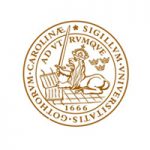项目介绍
Graduate students are admitted to a particular Home Program, integrating students into a close scientific community that includes postdocs and faculty. The Home Programs are the primary base of training for students during their first year, setting required coursework and qualification requirements as well as more informal relationships like study groups and social outings. This intimate setting also offers significant interactions with faculty, through retreats, seminar series, journal clubs, and other continued learning throughout the year.
Students first rotate within their Home Program but then are free to rotate in any lab within the 14 Home Programs, exploring new areas of research and scientific approaches. As students’ interests develop during their first year, they are able to decide to do dissertation research in any of the Home Programs. Indeed, within each lab, there are students from different Home Programs, enhancing the interdisciplinary collaboration that is at the heart of our philosophy. At Stanford Biosciences, our Home Programs are a network of people and resources that enables students to pursue the biosciences’ most interesting and important questions, opening new horizons at Stanford and beyond.
The mission of the Biochemistry Graduate Program is to provide research training that spawns leaders in academia, biotech, and beyond. Our faculty seek to understand fundamental biological questions at the level of how molecules act and interact so that we can discover the mechanisms behind their highly complex, intra- and intercellular processes. Two noteworthy features: We share all space and equipment, and students and postdocs are intermixed to enhance collaboration. All faculty—including seven members of the National Academy of Sciences and one Nobel laureate-are engaged in the department’s mission and espouse philosophies of community spirit.
The Department of Biology trains students for careers in basic research, offering intensive instruction in laboratories, seminars, and teaching. Our program coincides with the demands of modern biological research by applying an interdisciplinary approach that addresses the most important problems within the different fields of biology. The department’s diverse range of interests and expertise creates a challenging intellectual environment that encourages students to take innovative approaches to the study of fundamental questions in biology.
The Biomedical Informatics (BMI) Graduate Home Program trains research leaders who design, implement, and evaluate novel quantitative and computational methods that solve challenging problems across the entire spectrum of biomedical science and clinical medicine. As an interdisciplinary graduate training program, BMI has diverse faculty who attract students with training in biology, research and clinical medicine, computer science, statistics, engineering, and related disciplines, all united in their passion to transform biomedical science and clinical practice through informatics.
The mission of the Stanford Biophysics Graduate Home Program is to train students in quantitative approaches to biological problems while also developing their perspective in choosing important biological problems. As an interdisciplinary, interdepartmental program, research involves two overlapping branches of biophysics: the application of physical and chemical principles and methods to solving biological problems, and the development of new methods. Our program also offers a balanced academic curriculum tailored to the diverse backgrounds of our students.
The mission of the Stanford Cancer Biology Graduate Home Program is to provide our students with education and training that will enable them to make significant contributions to this remarkable field. Our thriving, interdisciplinary program includes significant exposure to cancer biology as a formal discipline. Graduate students perform their research in many of the clinical and basic science departments in the School of Medicine, with main concentrations in the Departments of Pathology, Radiation Oncology, and Medicine.
The Chemical and Systems Biology Graduate Program trains students to explore the function of complex biological systems at a quantitative and molecular level. Research in our laboratories combines state-of-the-art approaches from chemistry, biochemistry, cell biology, genomics, computational modeling, and other disciplines to understand cellular and organismal physiology, predict emergent behaviors, and translate these discoveries into new technologies and therapies. Our faculty members are internationally renowned scientists who foster an innovative and collaborative research environment, and alumni from our home program are leaders in academics, biotech, and science policy.
The Stanford Developmental Biology Graduate Home Program trains scientific leaders in using cutting-edge approaches to advance the understanding of the molecular mechanisms that generate diverse cell types in contexts ranging from the embryo to evolution. This work has connections to many areas of human health and disease, including stem cell biology, aging, cancer, diabetes, immunity and infectious disease, and neurological disorders. The Department of Developmental Biology is situated in one of the world’s best environments for research, with many alumni now leaders in biomedical research, teaching, and medicine.
An underlying theme in the Stanford Genetics Graduate Home Program is that genetics is not merely a set of tools but a coherent and fruitful way of thinking about biology and medicine. To this end, we emphasize a spectrum of approaches based on molecules, organisms, populations, and genomes. The mission of the Department of Genetics includes education and teaching as well as research, and graduates from our Home Program pursue careers in many different venues, including research in academic or industrial settings, health care, health policy, and education.
The Graduate Home Program in Immunology is a premier training program that is collaborative and multidisciplinary. We offer two tracks: Molecular, Cellular, and Translational Immunology (MCTI) and Computational and Systems Immunology (CSI). Our PhD curriculum includes lab and foundation courses, immunology and computational biomedical sciences core courses, a journal club, seminar series, and an annual retreat. We have 76 MCTI and 24 CSI faculty who are leaders in basic and translational immunology at the School of Medicine, Department of Biology, and the Palo Alto Veterans Administration.
The mission of the Stanford Microbiology and Immunology Graduate Home Program is to conduct the best possible research and provide the most rigorous and inspiring training in areas of microbiology, immunology, host-pathogen interaction, and related biomedical fields. Our holistic approach considers the entirety of the system we study, from pathogenesis of autoimmune diseases to pathogen-produced virulence proteins that reprogram infected cells. We offer a large number of formal courses, practical training and mentoring in the lab and clinic for passionate learners at all levels from diverse backgrounds.
The Department of Molecular and Cellular Physiology (MCP) is defined by a modern vision of Physiology, where cutting-edge approaches uncover the molecular logic of signaling processes from the atomic to the organismal level. Our research areas encompass structural biology, biophysics, cell biology and neuroscience in a highly collaborative environment to provide students with exceptional interdisciplinary opportunities. A unifying question for MCP is how signals and molecules cross membranes, spanning the molecular basis of synaptic transmission to signaling receptor activation to the biology of channels and transporters. Our faculty -including three Nobel laureates and five National Academy members -fosters a culture of excellence in graduate training and aims to produce the next generation of leading scientific investigators.
The mission of the Stanford Neurosciences Graduate Home Program is to train graduate students to become leaders in neuroscience research, education, and outreach. As an interdepartmental training program, we provide a flexible and rich research environment in which our researchers attempt to solve the major biological questions of our time. Every student is trained in the fundamentals of neuroscience and allied fields of biological sciences. Our faculty are highly distinguished scientists who have made fundamental discoveries in all areas of neuroscience research.
The Stem Cell Biology and Regenerative Medicine program offers training at the intersection of basic science and clinical application and is one of the 1st to offer doctoral degrees in translational science. Our program expands career opportunities for our graduates by providing them with the skills to encompass the continuum of basic, translational and clinical sciences. Students receive specialized training in the development and clinical application of discoveries in basic science to achieve regenerative therapies and will be uniquely positioned to develop translational careers and improve the human condition.
The Stanford Structural Biology Graduate Home Program emphasizes research training, with coursework covering quantitative approaches to biology. Department research tackles biological problems at the atomic level, using structural and biophysical methodologies to explain both function and disease. The department is consistently ranked first among the nation’s Structural Biology graduate programs. Our faculty includes one Nobel laureate, three members of the National Academy of Sciences, and three members of the Royal Society. We maintain strong links with Stanford Synchrotron Radiation Laboratory (SSRL).
联系方式
电话: 650-723-2300相关项目推荐
KD博士实时收录全球顶尖院校的博士项目,总有一个项目等着你!






